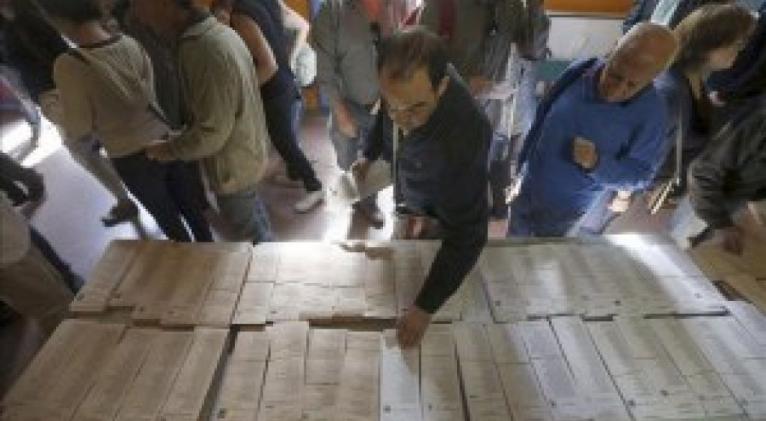PP Wins Spanish Local Elections, but Loses Dominance in Many Cities
especiales

The PP has obtained 27.02 percent of the votes counted so far, a more than 10 percent decline from the 2011 elections.
Meanwhile, the Spanish Socialist Workers Party, or PSOE, remains Spain’s second-largest political force, garnering 25.02 percent of the votes, some two-and-a-half percent below what it had achieved four years ago.
As voter surveys over the past week had forecast, two new parties made a significant splash on the political scene – Podemos, a leftist anti-austerity force, and Ciudadanos, a center-liberal grouping – and they may be decisive in creating majority coalitions, especially Podemos, which could make important advances in a number of local governments.
The loss of absolute majorities could cause the PP to lose control of the city halls in large urban areas such as Madrid, Valencia and Sevilla, along with others, and those governments could slip into the hands of the left.
Specifically, Madrid could wind up being governed by 71-year-old Manuela Carmena, the candidate of Podemos, a political force comprised of “outraged” citizens.
In Barcelona, a party known as Barcelona en Comun, the origin of which is similar to the case of Madrid, won the local elections, although the existence of several parties in the city government will force the formation of a coalition. Meanwhile, Catalonian sovereignty-supporting groups will govern in most of the region’s cities and towns.
In the northern city of Bilbao, the PNV nationalists are expected to be the governing force, although they will need coalition help.
The PP’s domination of Spanish politics has translated up to now into control of the majority of the country’s autonomous communities, or regions.
 Also being chosen on Sunday are the members of the regional assemblies in 13 of the country’s 17 communities.
Also being chosen on Sunday are the members of the regional assemblies in 13 of the country’s 17 communities.
The apparent results at this point in the vote count show that the PP is losing its absolute majority in the regions and will have to bond with another party, like Ciudadanos, if it wants to remain in power, although the PSOE and Podemos could supplant the PP in various places such as the Madrid region, where the left could regain the government it lost 20 years ago.
The same thing is occurring in the Valencian Community, one of the PP’s fiefdoms over the past two decades, where PP candidates won on Sunday but a union of the leftist parties could exclude them from the government.
The local elections are being held just a few months prior to the legislative elections to choose the members of Parliament, a body where the PP has held an absolute majority since 2011.
PP party leader and Prime Minister Mariano Rajoy on Monday will call together the party’s leadership to analyze the election results.
More than 35 million people were eligible to cast ballots for 8,122 mayors and regional government leaders in 13 regions and more than 1.5 million young people were eligible to vote for the first time in municipal elections.
Polls ahead of the elections pointed to high levels of uncertainty among voters soured by corruption scandals and weighing the messages of the two new national political parties that are threatening the two parties that have governed Spain over the past few decades.













Add new comment